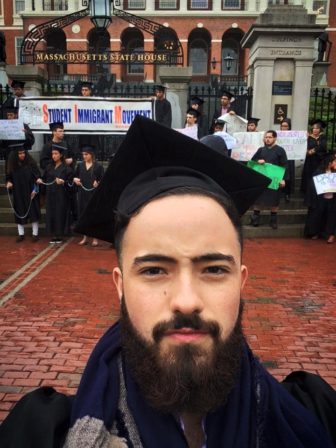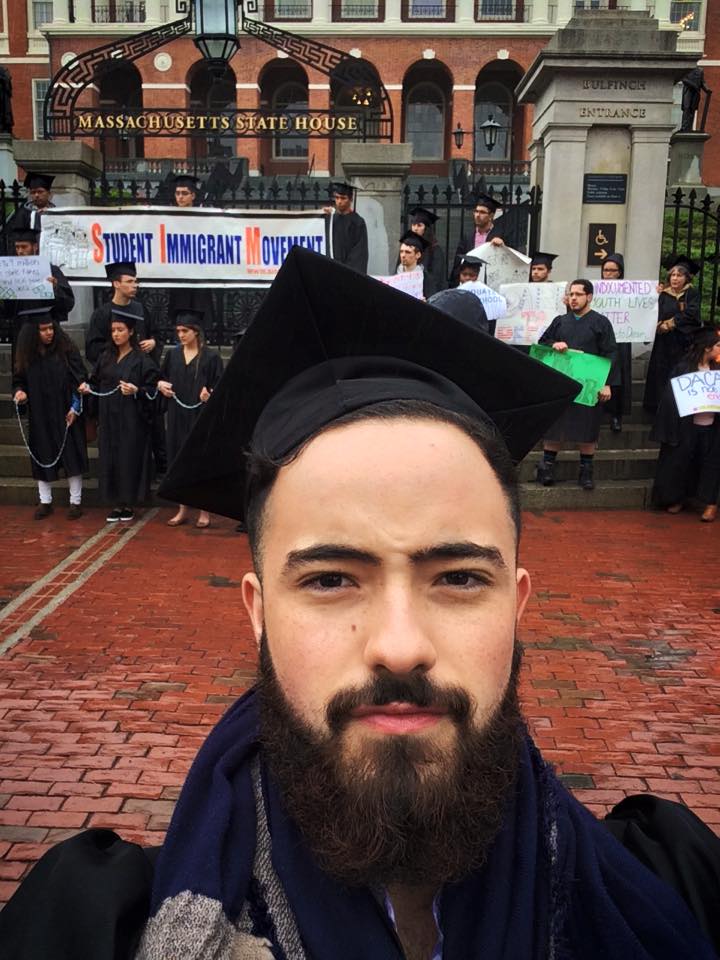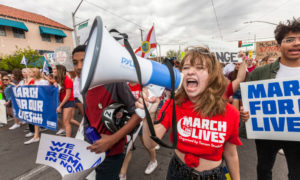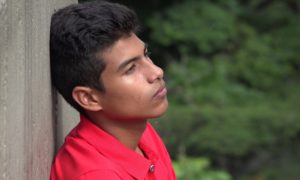 Right after Donald Trump was declared the winner of the 2016 presidential election, thousands of students were galvanized into action, walking out of schools in protests across the country. In Arizona, young people canvassed to remove Joe Arpaio, the local anti-immigrant sheriff of Maricopa County who supports Trump’s immigration rhetoric.
Right after Donald Trump was declared the winner of the 2016 presidential election, thousands of students were galvanized into action, walking out of schools in protests across the country. In Arizona, young people canvassed to remove Joe Arpaio, the local anti-immigrant sheriff of Maricopa County who supports Trump’s immigration rhetoric.
More than 4,000 students in Los Angeles walked out of 18 schools, expressing fear for their safety and future. In Boston, hundreds of students walked out after we developed concrete policy and issue demands that we brought to our governor and mayor.
Young people have always been at the front and center of social and political movements. Our flexibility, creativity and perspective make us the perfect group to lead critical masses of people toward justice.
Despite that, we are also especially vulnerable to oppressions like racism and sexism. Hate crimes and speech in our schools and communities have skyrocketed since the election.
Young people’s oppression, which trains us to believe that we are less intelligent, less capable and less powerful than adults, is key to suppressing the natural well of intelligence and energy that fuel revolutions, and allows other oppressions to take root. That is why dismantling young people’s oppression in the era of Trump is one of our fundamental objectives. When we empower young people and follow their lead, beautiful things happen.
Young people are already coming up with brilliant solutions, from mass mobilization and creative actions, to showing opposition to hate and bigotry and solidarity with one another, to running for public office on bold platforms and reshaping the way millennials engage in American democracy.
We are also prepared and equipped to do the hard work of protecting our vulnerable peers while healing and bringing divided communities together. We know that oppressions like racism and sexism, economic anxiety and uncertainty are all used to divide our communities and keep us from uniting.
These oppressions harden, desensitize and alienate all people. Until communities develop ways to listen to each other, come together to fight for the issues that matter to all of us and figure out a way to prevent contentious issues like immigration reform, police brutality and gender equality from dividing us, we will continue to find ourselves fragmented.
[Related: Before Learning Coping Skills, Juveniles Must Be Taught to Control Their Body]
We have to listen to uncomfortable, disagreeable opinions while challenging them from a place of radical love and empathy — remembering that hate comes from confusion, division and a long legacy of oppression. To be able to do that, we need to prioritize and center deep listening, strong relationship-building and healing as core tenets of both the internal work of our organizations and movements.
At the Boston Student Advisory Council, our signature peer-to-peer action and support model has been essential to cultivating sustainable movement-building. Our model acknowledges that organizers and movement builders need strong relationships and require ongoing emotional support to lead, especially in this current political climate.
Burnout and internal strife are often as dangerous as external threats. Years ago, when our youth organizing team became overwhelmed by stressors, we realized our personal lives and the challenges we faced on a daily basis were getting in the way of our work.
Participating in bimonthly peer support sessions became mandatory. At each session, we got a chance to listen to each other talk about the struggles and roadblocks we were facing and got to counsel each other through the oppressions so many of us have internalized through years of living in an oppressive society.
We slowly began to realize we were connected, not alone, and loved by each other. Our organizing work became easier and richer. We developed the ability to build more inclusive and welcoming spaces for all members of the community to reflect, heal, feel hope and then take action.
We got better at listening to a variety of perspectives, resolving conflict and generating resolution, and we began to craft the kind of direct action and tactics that actually move people in the direction of our vision for the world. A consistent space of peer-to-peer support to heal from the hurts of oppression and to build closely-knit relationships was essential to it all.
The Boston Student Advisory Council is a program administered in partnership between Youth on Board and the Boston Public Schools dedicated to empowering young people and placing them at the center of decision-making.
Now other organizations, like the Student Immigrant Movement in Boston, are following our lead in prioritizing the kind of peer-to-peer listening and healing that will make us more resilient and smarter in tackling this complex political climate. We are excited to bring a proven and effective model of healing and relationship-building to other organizations and individuals on the forefront of building a better nation for all.
Carlos Rojas Álvarez, 23, is a youth organizer with Youth on Board. For more information visit: www.youthonboard.org or email us at info@youthonboard.org.
More related articles:
Live on Washington: The Evolution of a Teen-Curated Festival, and Why It’s Important
Improve Youth Employment While Maintaining Our National Parks
Proposed Federal Bill Would Create New Job Programs for Opportunity Youth
































